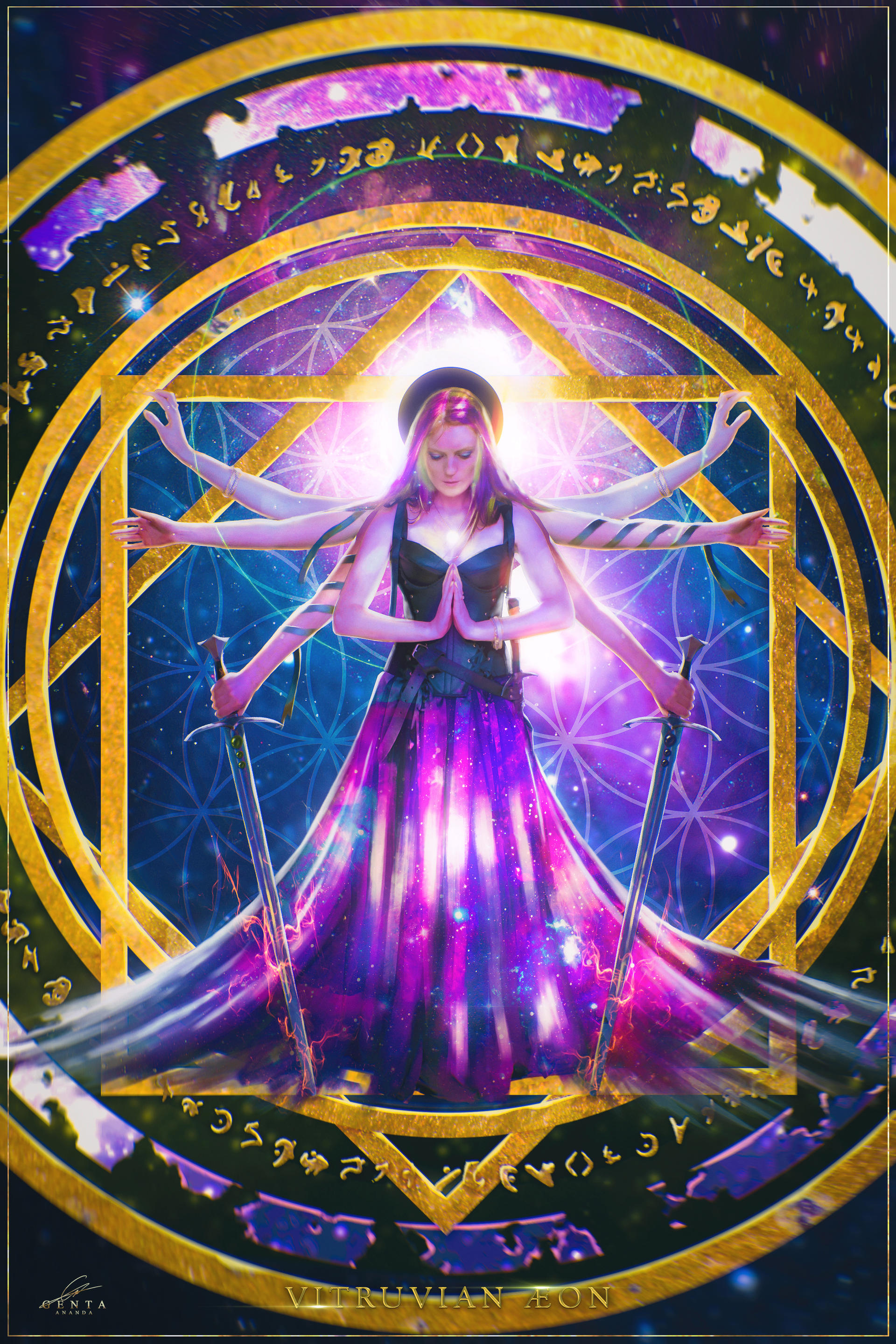

Arithmetician
| Level | Proficiency Bonus | Features | Aetherflow Die | Cantrips Known | 1st | 2nd | 3rd | 4th | 5th |
|---|---|---|---|---|---|---|---|---|---|
| 1st | +2 | Spellcasting, Ruinious Blast | - | 2 | 2 | — | — | — | — |
| 2nd | +2 | Expeditious Evaluation, Aetherflow | 1d6 | 2 | 2 | — | — | — | — |
| 3rd | +2 | Academic Specialization | 1d6 | 2 | 3 | — | — | — | — |
| 4th | +2 | Ability Score Improvement | 1d6 | 2 | 3 | — | — | — | — |
| 5th | +3 | Academic Specialization Feature | 1d6 | 2 | 4 | 2 | — | — | — |
| 6th | +3 | Improved Aetherflow | 1d8 | 2 | 4 | 2 | — | — | — |
| 7th | +3 | Top of the Class | 1d8 | 2 | 4 | 3 | — | — | — |
| 8th | +3 | Ability Score Improvement | 1d8 | 2 | 4 | 3 | — | — | — |
| 9th | +4 | Academic Specialization Feature | 1d8 | 2 | 4 | 3 | 2 | — | — |
| 10th | +4 | Theory of Probability | 1d8 | 3 | 4 | 3 | 2 | — | — |
| 11th | +4 | Improved Aetherflow | 1d10 | 3 | 4 | 3 | 3 | — | — |
| 12th | +4 | Ability Score Improvement | 1d10 | 3 | 4 | 3 | 3 | — | — |
| 13th | +5 | ─ | 1d10 | 3 | 4 | 3 | 3 | 1 | — |
| 14th | +5 | Theory of Relativity | 1d10 | 4 | 4 | 3 | 3 | 1 | — |
| 15th | +5 | Academic Specialization Feature | 1d10 | 4 | 4 | 3 | 3 | 2 | — |
| 16th | +5 | Ability Score Improvement | 1d10 | 4 | 4 | 3 | 3 | 2 | — |
| 17th | +6 | ─ | 1d10 | 4 | 4 | 3 | 3 | 3 | 1 |
| 18th | +6 | Improved Aetherflow | 1d12 | 4 | 4 | 3 | 3 | 3 | 1 |
| 19th | +6 | Ability Score Improvement | 1d12 | 4 | 4 | 3 | 3 | 3 | 2 |
| 20th | +6 | Divide by Zero | 1d12 | 4 | 4 | 3 | 3 | 3 | 2 |
Arithmetician
A young student slumps over a number of open tomes. The sun rises after a long night of study and failed experimentation. As she stands to finally retire, the equation finally clicks. It all comes together. She holds her tome in one hand and draws sigils in the air with the other. A bolt of arcane energy blasts forth across the room, impacting with a bookshelf on the other side.
An elderly professor walks a stone path through the woods, reciting arcane theory out loud to no one in particular. Several bandits drop from the trees and pull their knives on the man. In a flash of practiced finesse, the professor instinctively drops to his knees and draws a sigil on the earth, and a companion of rock and stone emerges from the ground to protect him.
A nervous gnome scholar defends his home from invaders. His brethren fight valiantly to hold off the horde of goblins, but they're outnumbered 5 to 1. The gnome searches the pages of his tome for an answer, and finds the calculations to summmon an ally. A sylph is conjured from seemingly nothing, and grants the gnomes the strength they need to succeed.
Arithmeticians wield arcane magics through the use of solving the right archaic equations. Their ability to call on the Weave is tied exclusively to their mastery of arcane calculations. Arithmeticians vary widely between their cultures and intentions, but they all share belief in the adage of "brains over brawn."
The Power of Math
A simple orc barbarian might know to "swing my axe" or "swing my axe harder" to obtain their desired results. But you know the exact necessary angle of impact, the required velocity, and whether adamantine, cold iron, or mithril variants would affect the blow. You see the world in equations and calculations. Every wonder of architecture, every legendary blade forged, and every mighty kingdom are really derived from the true magic of the universe: mathematics. Arithmeticians are sages that devote their lives to the theory and application of arcane math.
The Science of Aether
Aether is an ambient, pervasive energy source that is found in every nook and cranny of the universe. Most individuals go their whole lives without thinking twice about aether: it's invisible to the eye, odorless, and entirely intangible. But arithmeticians understand that aether is just one nudge away from becoming volatile. Arithmeticians use arcane equations to simultaneously find the dots necessary to create ruinous effects with aether, and then connect those dots to wield aether like a weapon or tool.
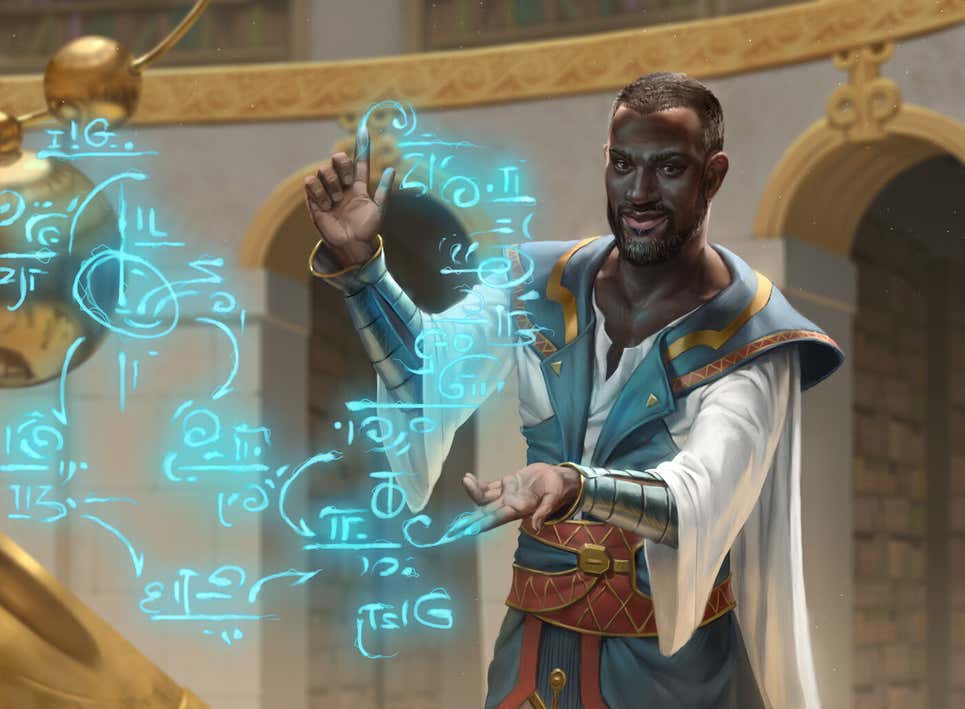

Class Features
As an arithmetician, you gain the following class features
Hit Points
- Hit Dice: 1d8 per arithmetician level
- Hit Points at 1st Level: 8 + your Constitution modifier
- Hit Points at Higher Levels: 1d8 (or 5) + your Constitution modifier per arithmetician level after 1st
Proficiencies
- Armor: Light armor
- Weapons: Simple weapons
- Tools: tools
- Saving Throws: Intelligence, Wisdom
- Skills: Choose two from Arcana, History, Insight, Investigation, Nature, and Religion
Equipment
You start with the following equipment, in addition to the equipment granted by your background:
- (a) a quarterstaff or (b) dagger
- A set of leather armor
- (a) a scholar's pack or (b) an explorer's pack
- An arcane tome
Spellcasting
As a practicioner of all things arcane, you have an arcane tome containing spells that you use to further your pursuit of magical theory and application.
Cantrips (0-Level Spells)
At 1st level, you know two cantrips of your choice from the wizard spell list. At higher levels, you learn additional arithmetician cantrips of your choice, as shown in the Cantrips Known column of the arithmetician table.
When you gain a level in this class, you can replace one of the wizard cantrips you know with another cantrip from the wizard spell list.
Spellbook
At 1st level, you have an arcane tome containing four 1st-level arithmetician spells of your choice. Your arcane tome is the repository of the arithmetician spells you know, except your cantrips, which are fixed in your mind.
Preparing and Casting Spells
The Arithmetician table shows how many spell slots you have to cast your arithmetician spells of 1st level and higher. To cast one of these spells, you must expend a slot of the spell’s level or higher. You regain all expended spell slots when you finish a long rest.
You prepare the list of arithmetician spells that are available for you to cast. To do so, choose a number of arithmetician spells from your arcane tome equal to your Intelligence modifier + your half your arithmetician level, rounded down (minimum of one spell). The spells must be of a level for which you have spell slots.
For example, if you’re a 5th-level arithmetician, you have four 1st-level and two 2nd-level spell slots. With an Intelligence of 16, your list of prepared spells can include five spells of 1st or 2nd level, in any combination, chosen from your spellbook. If you prepare the 1st-level spell shield, you can cast it using a 1st-level or a 2nd-level slot. Casting the spell doesn’t remove it from your list of prepared spells.
You can change your list of prepared spells when you finish a long rest. Preparing a new list of arithmetician spells requires time spent studying your arcane tome and memorizing the incantations and gestures you must make to cast the spell: at least 1 minute per spell level for each spell on your list.
Spellcasting Ability
Intelligence is your spellcasting ability for your arithmetician spells; your understanding of the mathematics behind magic allows you to wield these spells with superior skill. You use your Intelligence whenever an arithmetician spell refers to your spellcasting ability. In addition, you use your Intelligence modifier when setting the saving throw DC for an arithmetician spell you cast and when making an attack roll with one.
Learning Spells of 1st Level and Higher
Each time you gain an arithmetician level, you can add one arithmetician spell of your choice to your arcane tome for free. Each of these spells must be of a level for which you have spell slots, as shown on the Arithmetician table. On your adventures, you might find other spells that you can add to your arcane tome (see the “Your Spellbook” sidebar in the Player's Handbook).
Spell Save DC = 8 + your proficiency bonus + your Intelligence modifier
Spell Attack Modifier = your proficiency bonus + your Intelligence modifier
Ritual Casting
You can cast an arithmetician spell as a ritual if that spell has the ritual tag and you have the spell prepared.

Ruinous Blast
You begin your arithmetician career knowing the most basic of mathematical arcane applications in the form of the Ruinous Blast cantrip. This cantrip is an arithmetician cantrip for you, and does not count toward your cantrips known.
Ruinous Blast
Evocation Cantrip
- Casting Time: 1 Action
- Range: 120 ft range
- Components: V, S
- Duration: Instantaneous
You draw on the energy of nearby arcane leylines to assault one target within range. Make a ranged spell attack against the target. On a hit, the target takes 1d8 force damage. This spell's damage increases by 1d8 when you reach 5th level (2d8), 11th level (3d8), and 17th level (4d8).
Expeditious Evaluation
At 2nd level, you can quickly analyze and react to a bad situation. You may add your Intelligence modifier, rather than your Dexterity modifier, to initiative checks.
Aetherflow
Also at 2nd level, you have deciphered the equations necessary to command the stream of ambient aether around you to various effects. You have a pool of aetherflow dice—which are d6s—equal to your proficiency bonus. An aetherflow die is expended when you use it. You regain all of your expended aetherflow dice when you finish a short or long rest.
You know how to wield aether in the following ways:
- Outburst. When you deal damage with Ruinous Blast, you may expend one aetherflow die to increase its intensity. If you do, roll the die. The target and each creature of your choice within 5 feet of the target take force damage equal to the number rolled.
- Adloquium. When you cast a spell of 1st level or higher, you may use your reaction to expend an aethflow die to stiffen the spell's strands of aether into an invisible shield. If you do, roll the aetherflow die and grant one creature within 30 feet temporary hit points equal to the number rolled.
- Brainstorm. When you make an Intelligence check, expend one aetherflow die to sharpen your mind. If you do, roll the die and add the number rolled to your total. You can use this ability once per check.
Academic Specialization
At 3rd level, you choose the type of specialist you are: Convoker, Theurgist, or Binder, each of which is detailed at the end of the class’s description. Your choice grants you features at 3rd, 5th, 9th, and 15th level.
Ability Score Improvement
When you reach 4th, 8th, 12th, 16th, and 19th level, you can increase one ability score of your choice by 2, or you can increase two ability scores of your choice by 1. As normal, you can’t increase an ability score above 20 using this feature.
Improved Aetherflow
At 6th level, your aetherflow dice turn into d8s.
Top of the Class
At 7th level, your studies have made you an academic force to be reckoned with. Choose one skill from Arcana, History, Nature, or Religion. You gain proficiency in that skill if you don't already have it, or expertise if you do.
Theory of Probability
At 10th level, you learn to alter the the reality behind probability. If you would roll a d20 for an attack roll, ability check, or saving throw, you may choose to roll 5d4 instead. If you do, you cannot critically fail or critically succeed on the check. You can do this a number of times per long rest equal to your proficiency bonus.
Improved Aetherflow
At 11th level, your aetherflow dice turn into d10s.
Theory of Relativity
At 14th level, you learn how to manipulate the laws of physics to your advantage. You can use each of the following once per short or long rest:
- An object in motion remains in motion. When you move on your turn in combat, you can double your speed until the end of the turn.
- Force equals mass times acceleration. When a creature within 60 feet is damaged by a weapon attack, you can use your reaction to either accelerate or decelerate the weapon. If you accelerate the weapon, it deals an additional die of damage equal to your aetherflow die. If you decelerate the weapon, reduce the damage dealt by one roll of your aetherflow die.
- An equal and opposite reaction. When a creature within 60 feet casts a spell that deals damage, you may use your reaction to deal damage to that caster equal to the damage they rolled for the spell. The target takes half as much damage on a successful Dexterity saving throw.
Improved Aetherflow
At 18th level, your aetherflow dice turn into d12s.
Divide by Zero
At 20th level, you may cast Dark Star (Explorer's Guide to Wildemount) once per long rest without expending a spell slot or material components. You may regain 1 aetherflow die for each creature that is reduced to 0 hit points while within the radius of this spell.



Convoker
The ambient aether that arithmeticians command is volatile, reflexive, and often seems to have a semblance of life. Because of this, the equations in the arithmetician's repertoire are in need of constant scrutiny to factor in the ever-changing circumstances.
A convoker is an arithmetician that has mastered the the art of analysis of these circumstances. Such level of inquiry has opened the doors to new uses of aether manipulation: the convoker can command elemental aether to take corporeal form to aid him in battle.
Aether Companion
At 3rd level, you learn the calculations necessary to transform ambient elemental aether into a battle worthy companion. As a bonus action, you can expend one of your aetherflow dice to summon your aether companion.
The companion appears in an unoccupied space of your choice that you can see within 30 feet of you. The companion is friendly to you and your companions and obeys your commands. Choose Fire, Earth, Water, or Air. See this creature’s game statistics in the Aether Companion stat block, which uses your proficiency bonus (PB) in several places. If an ability calls for a saving throw, the DC is equal to your spell save DC. You determine the companion’s appearance; they are typically composed of or wreathed in the element you chose.
In combat, the companion shares your initiative count, but takes its turn immediately after yours. The only action it takes on its turn is the Dodge action, unless you take a bonus action (you can issue a command as part of the bonus action used to summon the companion) on your turn to command it to take another action. That action can be one in its stat block or some other action. If you are incapacitated, the companion can take any action of its choice, not just Dodge.
The companion manifests for 1 hour, until it is reduced to 0 hit points, until you use this feature to summon another companion, or until you die.
Companion's Aetherpact
At 5th level, your companion can use the momentum of its attacks to charge your aetherflow like a battery. After dealing damage to a creature with its Slam attack, your companion can use a bonus action to restore 1 aetherflow die to to you.
Enkindling Stratagem
At 9th level, you can use your action to expend an aetherflow die to multiply the aetherical capacity of your companion. Until the end of your companion's next turn, it can use the following empowered actions. If an ability deals X damage, X equals a number of rolls of your aetherflow die equal to your proficiency bonus. Once you use this feature, you must finish a long rest before you can use it again.
- Earthen Fury (earth only.) Choose a point you can see on the ground within 60 ft. A fountain of churned earth and stone erupts in a 20-foot cube centered on that point. Each creature in that area must make a Dexterity saving throw. A creature takes twice X bludgeoning damage on a failed save, or half as much damage on a successful one. Additionally, the ground in that area becomes difficult terrain.
- Inferno (fire only). Flames wreathe one creature you can see within range. The target must make a Dexterity saving throw. It takes twice X fire damage on a failed save, or half as much damage on a successful one. On a failed save, the target also burns for the spell’s duration. The burning target sheds bright light in a 30-foot radius and dim light for an additional 30 feet. At the end of each of its turns, the target repeats the saving throw. It takes X fire damage on a failed save, and the spell ends on a successful one.
- Biting Downdraft (air only). A whirlwind howls down to a point that you can see on the ground within 60 ft. The whirlwind is a 10-foot-radius, 30-foot-high cylinder centered on that point. Each creature in that area must make a Constitution saving throw. On a failed save, a creature takes twice X slashing damage and is knocked prone. On a successful save, a creature takes half as much damage and isn’t knocked prone.
- Water Cannon (water only). You create a blast of water, forming a line 60 feet long and 5 feet wide out from you in a direction you choose. Each creature in the line must make a Dexterity saving throw. On a failed save, a creature takes twice X bludgeoning damage and is pushed back 15 feet. On a successful save, a creature takes half as much damage and isn’t pushed back.
Devotion Through Aether
At 15th level, if you would suffer an effect from a failed saving throw against a spell or magical ability, if your companion is within 60 feet of you, it can use its reaction to suffer that effect instead, as if it were subjected to the spell or ability. For example, if you failed your saving throw against a Cone of Cold spell, you take no damage, and your companion suffers the damage instead. Once you use this ability, you must take a short or long rest before using it again.
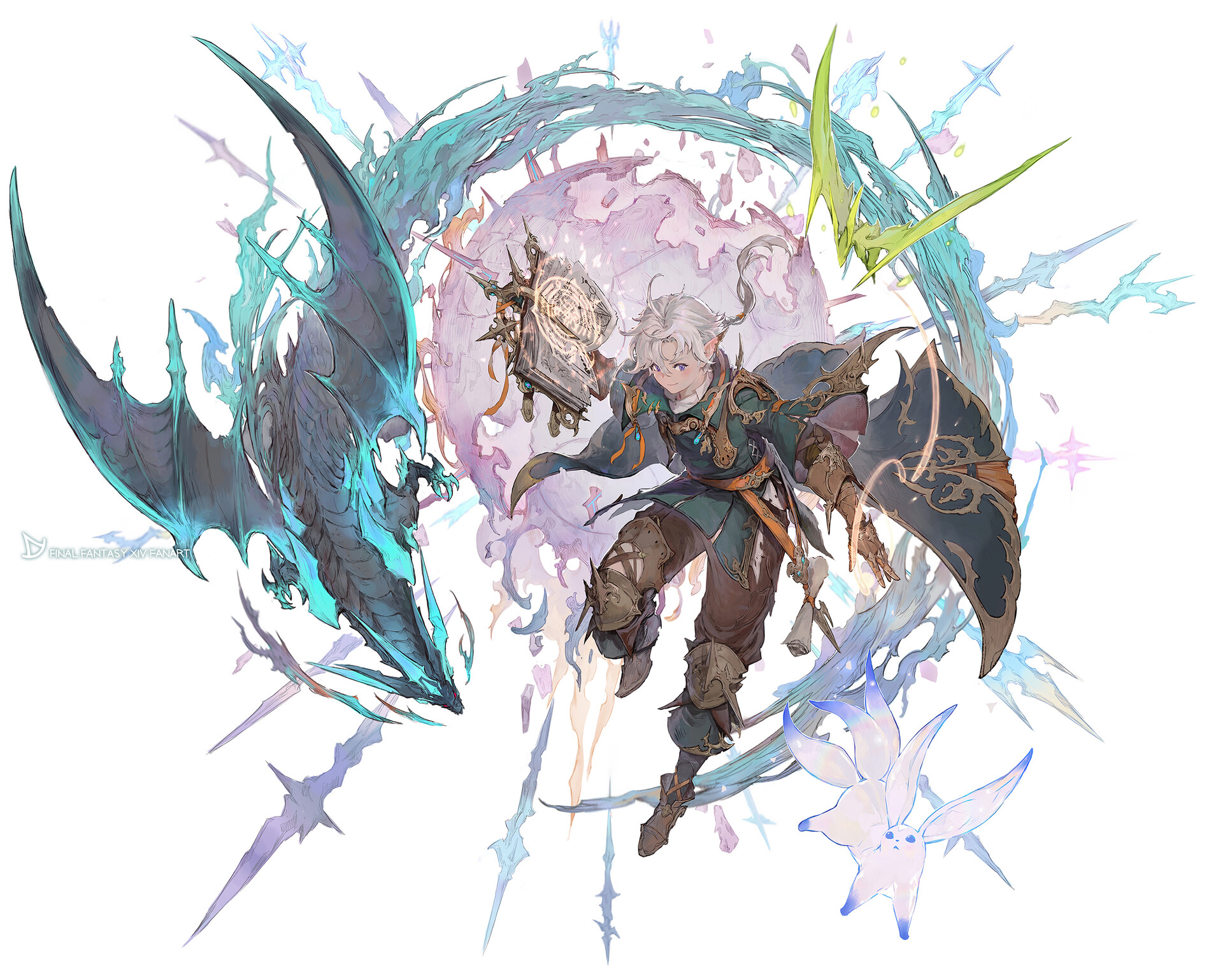

Aether Companion
Small elemental
- Armor Class 12 + PB (Natural Armor)
- Hit Points 5 + five times your arithmetician level
- Speed 40 ft.; fly 40 ft. (hover); burrow 40 ft. (Earth only); swim 40 ft. (Water only)
STR DEX CON INT WIS CHA 10 (+0) 14 (+2) 14 (+2) 13 (+1) 15 (+2) 11 (+0)
- Damage Resistances acid (Water only); lightning and thunder (Air only); piercing and slashing (Earth only)
- Damage Immunities poison; fire (Fire only)
- Condition Immunities charmed, exhaustion, frightened, paralyzed, petrified, prone, restrained
- Senses darkvision 60 ft., passive Perception 12
- Languages understands the languages you speak
- Challenge PB
Amorphous Form (Air, Fire, and Water Only). The companion can move through a space as narrow as 1 inch wide without squeezing.
Master's Command. You can add your proficiency bonus to any ability check or saving throw that the aether companion makes.
Bonus Actions
Earthen Armor (earth only.) The companion wields rock and stone in a defensive maneuver to create a barrier. Until the end of its next turn, one target within 30 ft. is surrounded by floating earth material, granting them half cover.
Heatwave (fire only). The companion intensifies the heat that forms its body. Each creature within 5 feet of the companion takes PB fire damage.
Slipstream (air only). The companion creates a harsh gust of wind in a 15 ft. cone originating from itself. Each creature in the area must make a Strength saving throw or be knocked back 10 ft. A creature that is large or larger has advantage on the save.
Whirlpool (water only). The companion morphs its body into a temporary whirlpool. Each creature within 5 feet of the companion must make a Strength saving throw or be knocked prone. A creature that is large or larger has advantage on the save.
Actions
Slam. Melee Weapon Attack: Your spell attack modifier to hit, 5 ft. reach, one target. Hit 1d8 + PB bludgeoning damage (Air, Earth, and Water only) or fire damage (Fire only) damage




Theurgist
In an age long past, when mankind flourished under the radiance of arcane mastery, the island of Vylbrand was home to a city-state called Nym. Though the history of that age tells of countless wars waged with earth-shattering incantations, it was the brilliant strategic maneuvering of Nym's scholars that allowed their mundane army of mariners to throw back would-be conquerors time and again.
These learned men and women defended the freedom of their tiny nation with their unique command over life-infused aether, which took the form of aether sylphs. They utilized the creatures' magics to heal the wounded and bolster the strength of their allies.
Aether Sylph
At 3rd level, you learn the find familiar spell and can cast it as a ritual and without material components. The spell doesn’t count against your number of spells known. When you cast the spell, you can choose one of the normal forms for your familiar or an Aether Sylph (see the Aether Sylph statblock).
As a bonus action, you can command the familiar to take the Attack action. When the familiar takes damage, you can use your reaction to grant it resistance against that damage.
Expanded Spell List
Also at 3rd level, you can tap into your aether sylph's condensed life-infused aether to cast spells not in your spellbook. You always have these spells prepared, and they do not count against the number of spells you can prepare each day, but only while your sylph is summoned and within 100 feet of you.
| Arithmetician Level | Spells |
|---|---|
| 1st | Cure Wounds |
| 3rd | Lesser Restoration |
| 5th | Revivify |
| 7th | Death Ward |
| 9th | Greater Restoration |
Familiar's Aetherpact
At 5th level, when you cast Ruinous Blast or a spell of 1st level or higher, if your aether sylph is within 100 feet of you, it can use its reaction to redirect some of your expended energy back to you, restoring 1 aetherflow die.
Of Sound Body and Mind
At 9th level, when a creature within 60 feet of you that you can see fails a saving throw, you may use your reaction to expend one aetherflow die to allow that creature to immediately roll a new saving throw, and add one roll of your aetherflow die to the total.
Succor
At 15th level, when you expend an aetherflow die to use your Adloquium ability and your aether sylph is within 100 feet of you, your aether sylph can use its reaction to empower and expand your shields. If it does, double the number of temporary hit points the ability grants, and grant them to any number of creatures within 60 feet of you. Once you use this ability, you must finish a short or long rest before using it again.
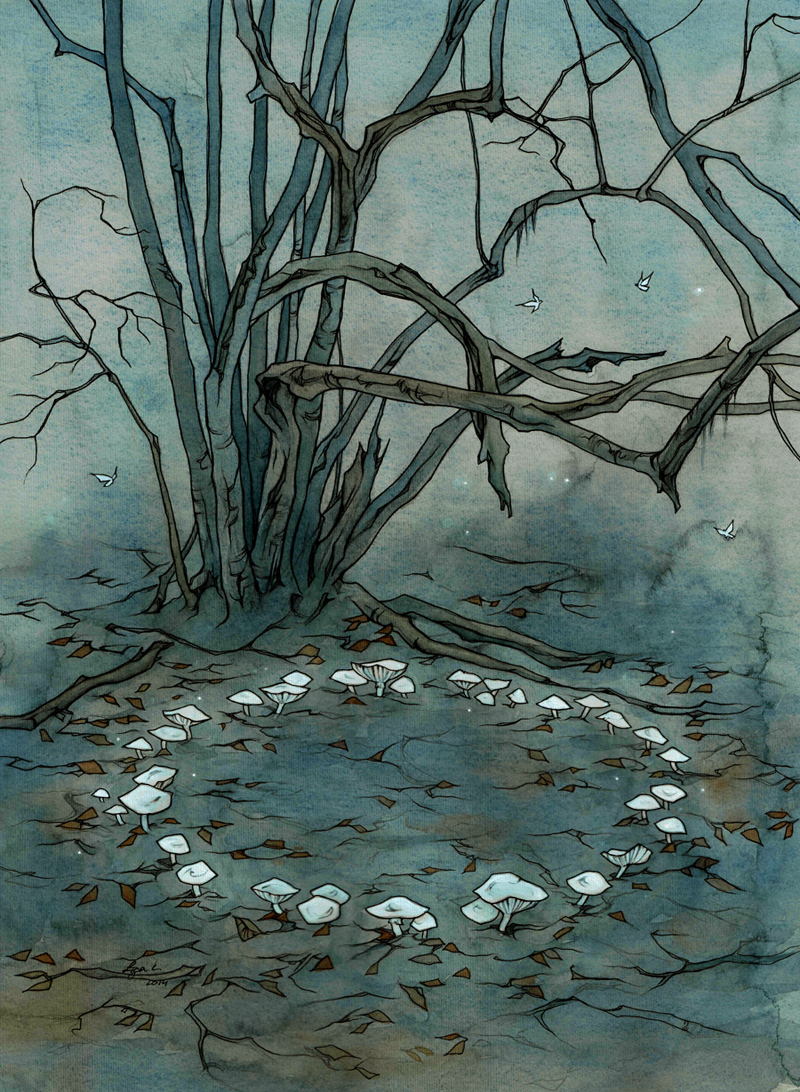

Aether Sylph
Tiny elemental
- Armor Class 13 (natural armor)
- Hit Points 1 + your Intelligence modifier + your arithmetician level (the sylph has a number of Hit Dice [d4s] equal to your arithmetician level)
- Speed 20 ft., fly 40 ft (hover)
STR DEX CON INT WIS CHA 4 (-3) 15 (+2) 12 (+1) 10 (+0) 10 (+0) 13 (+1)
- Saving Throws DEX + 2 plus PB
- Skills Perception +0 plus PB × 2, Stealth +2 plus PB
- Damage Immunities Poison
- Condition Immunities charmed, exhaustion, frightened, paralyzed, petrified, prone, restrained
- Senses darkvision 60 ft., passive Perception 10 + (PB × 2)
- Languages understands the languages you speak
- Challenge PB
Evasion. If the sylph is subjected to an effect that allows it to make a Dexterity saving throw to take only half damage, it instead takes no damage if it succeeds on the saving throw, and only half damage if it fails. It can’t use this trait if it’s incapacitated.
Actions
Sylph's Embrace. Ranged Spell Attack: 30 ft. range, one target. The sylph grants PB temporary hitpoints to the target. These temporary hitpoints fade away after 1 minute.
Reactions
Arcane Conduit. When you expend an aetherflow die, your sylph acts as an conduit to further enhance your abilities. If it does, roll a d6 and add it to your aetherflow die roll.
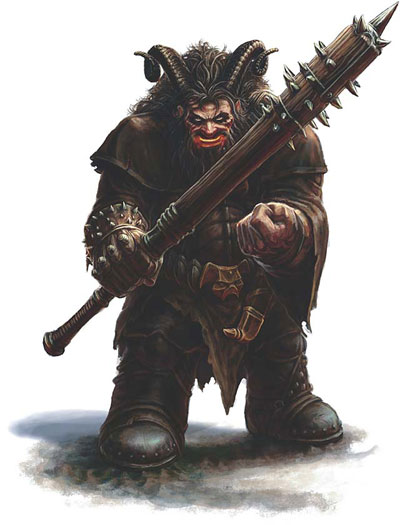

Binder
Libraries are rife with shelves of tomes detailing the lives of figures that have altered history in unimaginable ways. Some are mortals that have built entire civilizations. Others are goddesses or patrons of times long gone. Whether for good or evil, when an entity influences the realms in such a devastating or inspiring manner, they impress themselves on the Weave. These impressions are often overlooked by all but the dullest of historians or, perhaps, a binder. Binders wade into the thick of battle, clad in armor and the vestiges of figures of the old world.
Valor-dictorian
At 3rd level, your study of the art of war has granted you the following:
- You gain proficiency in medium armor, shields, and martial weapons.
- When you make an attack, you can use your Intelligence modifier, instead of Strength or Dexterity modifier, for the attack and damage rolls.
Aetherical Binding
At 3rd level, you have learned the arithmetic necessary to copy impressions of historical figures from the Weave into your spellbook, and how to mesh them with your own aether. Doing so grants you a fraction of the talents of these figures. These impressions are known as vestiges. See the Vestiges section of this document for a list of vestiges you can research and bind.
You begin your binder career with two vestiges in your arcane tome. When you finish a short or long rest, you may bind up to one vestige to yourself. As you gain levels, you add additional vestiges to your arcane tome and you may bind more vestiges at the same time, as shown in the Vestige Progression table. Additionally, when you gain a level in this class, you can choose one of the vestiges you have in your arcane tome and replace it with another vestige.
Binding a vestige to your aether has several effects. Its Sign is a physical aspect you take on that is reflective of the vestige you are bound to. Its Minor Arcana and Major Arcana grant you various abilities. Using a vestige's Major Arcana costs one aetherflow die. For any Major Arcana that says "once per turn as an action or attack," you can only use one of these abilities per turn.
You may use a bonus action to erase a vestige from your aether. Doing so removes all effects of the vestige until you re-bind it, and restores all uses of your aetherflow dice.
You may use a bonus action to suppress the signs of one or more of your bound vestiges. If you do, you do not gain the benefits of that vestige's Minor and Major Arcana. As a bonus action, or when you roll initiative, you may display one or more suppressed signs, once again granting you access to the benefits of the vestige.
If an ability granted by a vestige calls for a saving throw, the DC is your spell save DC. If an ability says "X" (e.g., "X damage"), X equals a number of rolls of your aetherflow die equal to your proficiency bonus.
Vestige Progression
| Arithmetician Level | Vestiges Known | Vestiges Bound |
|---|---|---|
| 3 | 2 | 1 |
| 4 | 3 | 2 |
| 5 | 3 | 2 |
| 6 | 4 | 3 |
| 7 | 4 | 3 |
| 8 | 5 | 3 |
| 9 | 5 | 3 |
| 10 | 6 | 4 |
| 11 | 6 | 4 |
| 12 | 7 | 4 |
| 13 | 7 | 4 |
| 14 | 8 | 5 |
| 15 | 8 | 5 |
| 16 | 9 | 5 |
| 17 | 9 | 5 |
| 18 | 10 | 6 |
| 19 | 10 | 6 |
| 20 | 11 | 6 |
Extra Attack
Beginning at 5th level, you can attack twice, instead of once, whenever you take the Attack action on your turn.
Many Minds
At 9th level, your affiliation with personalities that are not your own grants you a mental shield. As long as you are bound to a vestige, you are immune to being charmed and have resistance to psychic damage.
We Are Legion
At 15th level, when you would drop in combat, your vestiges can keep your body in the fight. If you are bound to at least one vestige, having 0 hit points doesn’t knock you unconscious. At the start of any turn on which you have 0 hit points, choose one bound vestige to erase from your aether. If you cannot, you fall unconscious. You still must make death saving throws, and you suffer the normal effects of taking damage while at 0 hit points. However, if you would die due to failing death saving throws, you don’t die until you are no longer bound to a vestige, and you die then only if you still have 0 hit points.
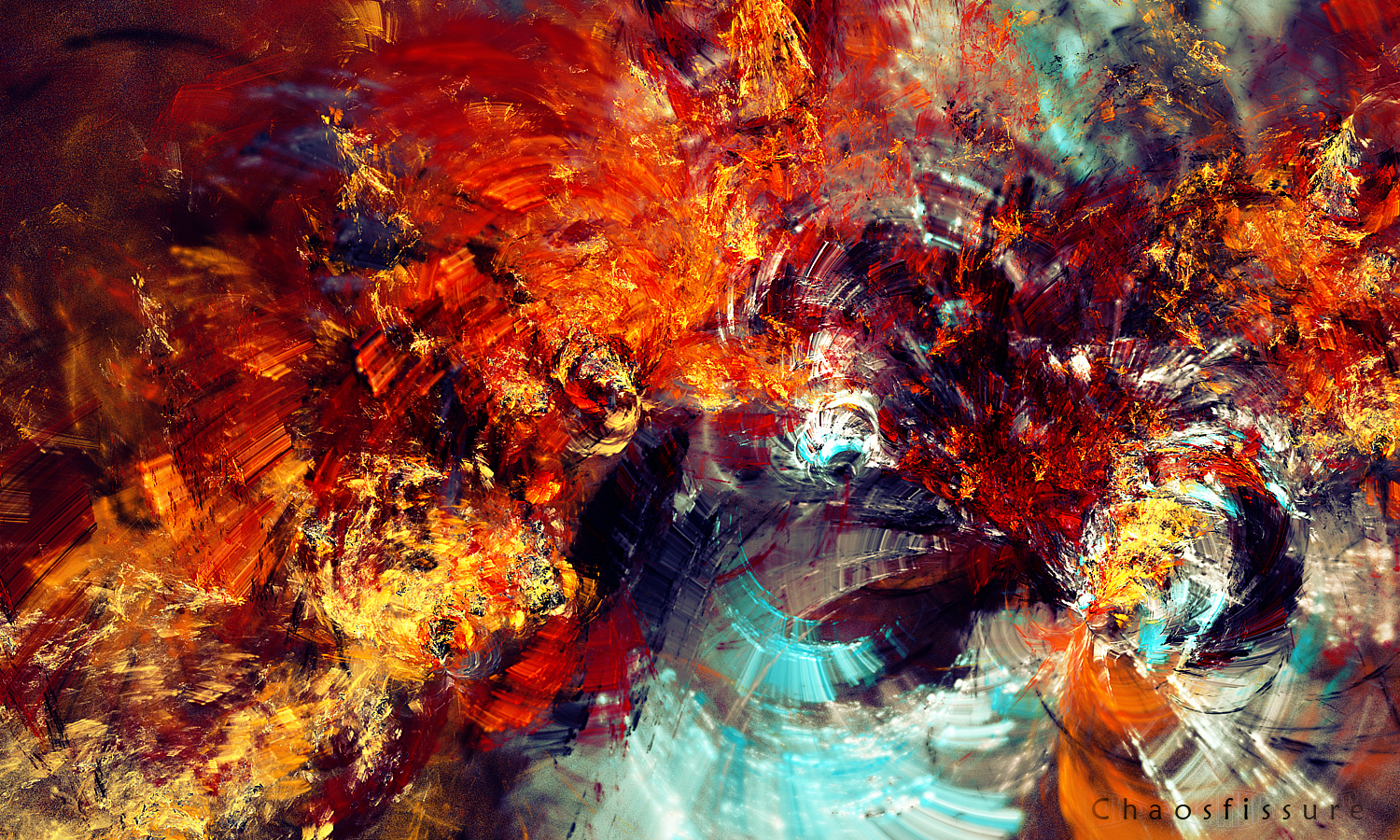

Vestiges
Acererak, The Devourer
Acererak was a powerful wizard. As he grew older and saw the specter of death looming, he sought out and completed the ritual for becoming a lich. After he assumed his undead form, his power continued to grow for centuries more. Acererak eventually felt the forces animating his undead body begin to wane. Knowing that final oblivion was near, he decided to build himself a secret tomb, the Tomb of Horrors, which had a supposed reward inside.
This was all part of an elaborate ruse designed to bring powerful adventurers into the to fuel a ritual that he hoped would merge his consciousness with the Negative Energy Plane through the sacrifice of potent spirits. Had he actually accomplished this goal, he could have assumed control of any undead on any plane and gained godlike powers as well as immortality.
Some of the heroes Acererak lured to his tomb proved even more powerful and ingenious than he had anticipated. At the last possible moment, they surmised Acererak's plan and destroyed the artifact that was crucial to his apotheosis. They struck down Acererak and shattered his phylactery.
- Sign. A gem replaces one of your teeth. If removed, the gem reverts to a normal tooth, and a new gem appears in its place.
- Minor Arcana: Promise of Reward. Once per long rest, you may spend 1 minute of meditation with a gem worth 100 gp or more. If you do, you recover all expended aetherflow dice.
- Minor Arcana: Lich's Resistance. You are resistant to necrotic damage.
- Major Arcana: Paralyzing Touch. Once per turn as an action or attack, you may expend one aetherflow die to wreathe your hand in necrotic energy. If you do, make a melee spell attack against one creature within 5 feet. On a hit, the creature takes X necrotic damage and must make a Constitution saving throw or become paralyzed until the end of its next turn.
Agares, Truth Betrayed
In life, Agares ruled over vast armies on the Elemental Plane of Earth. He was the most powerful general the plane had yet seen and second in authority only to his genie emperor, a dao of great influence. Even though Agares was unalterably loyal, he nevertheless gave his emperor reason to fear betrayal.
Agares became obsessed with a djinni commander who had thwarted his conquests on several occasions. His desire to meet this favored foe on the field of battle blinded him to other tactical options and deafened him to rumors that his esteem for his enemy had deepened into love. When at last Agares entrapped the djinni's forces, he girded himself for personal combat and set out to answer a challenge to duel his adversary. The summons was a trap laid by Agares's lieutenants, however; his allies slew him within sight of his greatest enemy.
- Sign. You gain a cough that occasionally spews dust or even small stones from your mouth.
- Minor Arcana: Greatest Enemy. When you roll initiative, select one foe you can see. For this combat, when you make your first attack on each of your turns against this foe, you may attack without heed. Doing so gives you advantage on melee attack rolls during that turn, but attack rolls against you have advantage until your next turn.
- Minor Arcana: Fearless. You have advantage on saving throws against becoming frightened.
- Major Arcana: Earthshaking Step. Once per turn as an action or an attack, you can expend an aetherflow die to stomp the ground. If you do, each creature on the ground within 10 feet of you must make a Dexterity saving throw. On a failure, takes X bludgeoning damage is knocked prone. On a success, they take half as much damage and are not knocked prone.
Amon, the Void Before the Altar
Scholars claim that Amon is what remains of the personality of a god who died of neglect millennia ago. Once worshiped by thousands, Amon eventually lost his faithful to more responsive deities. Since his demise, his impression on the Weave seems to have dramatically changed once-known demeanor. Once a calm and wise protector, a god of light and law, Amon's vestige now represents a foultempered and hateful spirit.
- Sign. You grow a ram's curling horns.
- Minor Arcana: Charging attacks. If you move at least 20 feet straight toward a creature and then hit it with melee attack, that target must succeed on a Strength saving throw or be knocked prone.
- Minor Arcana: Superior Darkvision. You have darkvision out to 120 feet.
- Major Arcana: Breath of Amon. Once per turn as an action or attack, you can expend an aetherflow die to vomit forth a line of fire 5 feet wide and 20 feet long. Each creature in the area must make a Dexterity saving throw. Creatures take X fire damage on a failure, or half as much on a success.

Amun-Her Khepesef, The Desecrated Scion
Amun-her Khepeshef was the heir to the throne, son of the king, and leader of the army. The empire kept thousands of slaves, who they used to build numerous pyramids, tombs, and palaces. When the slaves revolted, the empire imposed harsh strictures, limiting their religious freedoms. Eventually, the people rebelled, calling on their long suppressed god to smite their captors. Furious, the god struck the empire with numerous plagues—fire, vermin, disease, drought, and worse. The final plague was the most terrible even in the empire's history—the foreign god struck down the firstborn sons of each family in the empire, including Amun-her Khepeshef.
The loss of the first-born sons was tragic, bringing an entire generation to its knees with depression and desperation. To make matters worse, grave robbers and rival invaders desecrated the numerous new tombs, destroying the sanctity of the afterlife of the dead sons. These spirits became furious: angry at the foreign god and his people, enraged at those who betrayed them in their complacency, livid at the tomb robbers who interrupted their after-life, the spirits appealed to the god of the dead, who agreed to banish them beyond space and time, so that they would suffer no longer. These spirits were removed from existence as a single bound entity known as Amun-her Khepeshef.
- Sign. You take on the look of the dead: jaundiced skin, sunken cheeks, bags under the eyes, and stiff movements.
- Minor Arcana: Halt Death. You can cast the Spare the Dying cantrip at will.
- Minor Arcana: Firstborn Guardian. You have advantage on saving throws against poison, and you have resistance against poison damage.
- Major Arcana: Burst of Life. Once per short or long rest as an action or attack, you can expend an aetherflow die to release a 30-foot radius burst of positive energy centered on yourself. Choose any number of creatures in this radius, including yourself. Each creature restores X hit points.
Andras, the Gray Knight
Andras was once an elf paladin famed for his prowess in battle and his implacable dedication to doing what was right and good for all. A series of misjudgments and misfortunes broke Andras's faith in both himself and his deity, however, and he became a blackguard. During his subsequent service to the dark gods, his infamy rapidly outgrew his fame, and his name was whispered in fear.
After nearly three hundred years of almost constant battle on behalf of both good and evil, Andras grew tired of both causes. In the midst of a duel in the key battle of a great war, he simply dropped his weapon and left, never to be seen alive again. Sages speculate that after his betrayal of both causes, he was no longer welcome in any god's realm, and thus his soul was condemned to to the aether.
- Sign. You sprout two useless, gray-feathered wings from your back. The wings are small enough to be hidden beneath a shirt or cloak, but doing so makes you appear hunchbacked.
- Minor Arcana: Saddle Sure. You gain proficiency in the Animal Handling skill.
- Minor Arcana: Sure Blows. Your weapon attacks score a critical hit on a roll of 19 or 20
- Major Arcana: Sow Discord. Once per turn as an action or attack, you can expend an aetherflow die to sow discord among your enemies. One creature within 30 feet must make a Wisdom saving throw. On a failure, the creature takes X psychic damage and becomes charmed by you until the end of its next turn. While charmed this way, the target must use its action or first attack on its next turn, if possible, to attack its closest ally within reach or range of its currently held weapon. On a success, it takes half as much damage and suffers no other effect.
Andromalius, The Repentant Rogue
Once the herald of the trickery god Olidammara, Andromalius foreswore theft and mischief on his deathbed, repenting all the actions he had taken on behalf of his god during his life. By this means, he hoped to steal his soul from his deity, thus accomplishing his greatest theft and prank in history, and proving himself the most worthy of his god's favor.
At first angered by Andromalius's betrayal, Olidammara quickly realized the irony of the moment and burst into laughter. Yet the god's good humor was short-lived, because he realized that to accept Andromalius's soul would be to prevent the theft and ruin the joke. Since Olidammara was loath to let such a clever servant to go to the realm of some other god, he repaid his servant's honor a hundredfold—he stole Andromalius's soul from the cosmos. Whether Andromalius deemed this result an honor or not remains unclear.
- Sign. You gain an extra digit on each limb. This appendage prevents you from wearing normal gloves or gauntlets, but magic gloves and gauntlets reshape to fit you.
- Minor Arcana: Sense Trickery. You gain proficiency in the Insight skill.
- Minor Arcana: Detect the Unseen. You gain a +5 bonus to your passive perception. This does not stack with other bonuses to your passive perception.
- Major Arcana: Jester's Mirth. Once per turn as an action or attack, you can expend an aetherflow die to psychically assault a target within 30 ft. The target must make a Wisdom saving throw. On a failure, the target takes X psychic damage and then perceives everything as hilariously funny and falls prone in fits of laughter, becoming incapacitated and unable to stand up until the end of its next turn. On a success, the target takes half as much damage and suffers no other effect. A creature with an Intelligence score of 4 suffers damage but no other effect.

Ansitif, the Befouler
Ansitif the Befouler is an ancient tanar'ri lord who rose to power in the wake of the obyriths' fall and quickly seized control of the 21st layer of the Abyss, now known as the Sixth Pyre. Although most demon lords hunger for the power of true gods, Ansitif was enraged by the very existence of divine beings. Unable to challenge most deities directly, the Befouler vented his fury through the corruption of religious sites and relics dedicated to true gods. At the height of his power, Ansitif's demesne was littered with the shattered relics of countless faiths and the ruins of desecrated temples drawn into the Abyss.
Ansitif joined with six tanar'ri allies to hunt down and destroy a powerful obyrith called the Malgoth. The affair took Ansitif and his allies away from their centers of power, and opportunistic demon lords assassinated or imprisoned each member of the alliance in turn. In the case of the Befouler, his most powerful general, a balor named Kardum, betrayed Ansitif and had him imprisoned in the Wells of Darkness on the 73rd layer of the Abyss.
- Sign. Your hair and skin become blackened and scorched, as if briefly touched by fire.
- Minor Arcana: Demon's Defense. You have resistance to fire damage.
- Minor Arcana: Know Thy Enemy. You have advantage on Religion checks.
- Major Arcana: Blasphemous Strike. Once per turn as an action or attack, you may expend one aetherflow die to strike a foe in a blaze of smoke and fire. If you do, make a melee spell attack against one creature within 5 feet. On a hit, the creature takes X fire damage and must make a Constitution saving throw or become stunned until the end of its next turn.
Ashardalon, Pyre of the Unborn
Ashardalon was a red dragon of unusual greed and power. He sought to control a vast stretch of land, and ravaged it in cruel hunts for food, sport, and power. So great was Ashardalon's power that cults grew to revere him as a deity and followed him into what they believed were holy wars. In time, however, an alliance of rangers and elves managed to defeat Ashardalon's armies. Shortly thereafter, the dragon faced a powerful druid who had risen to defend the land, and was nearly slain.
As a near god, however, Ashardalon was a force to be reckoned with, even in defeat. He hid on the Outer Planes for millennia and, through complex machinations, managed to replace his heart with that of a Balor, becoming a creature of even greater supernatural evil. Renewed, the dragon made an assault on the Bastion of Souls in an effort to destroy all living creatures. There, Ashardalon faced a distant descendant of a druid who had vanquished him once before and was truly killed.
Still, his death at the birthplace of all souls (combined with his nearly deific status) allowed him to resist a permanent resting place. His essence lacked the power to become a true immortal, leaving him only the nebulous existence of a vestige.
- Sign. A patch of skin over your heart is marked by a deep-hued crimson sigil of a curled red dragon.
- Minor Arcana: Ashardalon's Vigor. When you bind this vestige, you gain temporary hit points equal to your arithmetician level.
- Minor Arcana: Ashardalon's Vengeance. You have advantage on opportunity attacks.
- Major Arcana: Ashardalon's Presence. Once per turn as an action or attack, you may expend one aetherflow die to strike at a foe while unleashing the roar of a mighty dragon. If you do, make a melee spell attack against one creature within 5 feet. On a hit, the creature takes X thunder damage and must make a Wisdom saving throw or become frightened of you until the end of its next turn.
Astaroth, Diabolus of Baator
This once-powerful demon lord who is said to have once rule a layer of the Abyss know as the Terminal Archives, with a gift for prophecy offered to fight alongside the Queen of Chaos during her war with the Wind Dukes of Aaqa, but was rejected. In the early days of the Blood War, Astaroth earned the name Diabolus by infiltrating the legions of Baator and rising to the rank of Treasurer of Hell. His true nature was eventually exposed by the arch-devil Gargauth, forcing Astaroth to flee the wrath of Asmodeus, but his spying caused incalculable harm to the devil's war effort and prevented the legions of hell from winning a clear and decisive victory against the hordes of the abyss.
Upon his return to the Abyss, Astaroth retreated to a steam-filled layer filled with floating chunks of burning stone. In preparation for the inevitable retaliation of the Lords of Nine, Astaroth began cultivating mortal cults on countless worlds through the use of his prophetic powers, in hopes of transforming himself into a god. He must have succeeded in some fashion, although not enough to forestall his fate. Astaroth was eventually slain by Gargauth, at the command of Asmodeus. In addition to claiming his predecessor's name, the Tenth Lord of Nine is said to have seized the mantle of divinity from Astaroth as well.
- Sign. You acquire the stench of brimstone and a cloudy film covers your eyes.
- Minor Arcana: Serpentine Tongue. You are proficient in the Deception skill.
- Minor Arcana: Blackflame Blast. When you cast Ruinous Blast, you may have it deal fire damage instead of force damage. If you do, it ignores resistance to fire damage and you can treat any 1 on a damage die as a 2 instead.
- Major Arcana: Gift of Prophecy. Once per turn, when you roll a weapon attack, skill, or saving throw, you may expend one aetherflow die. If you do, roll the die and add it to the total.
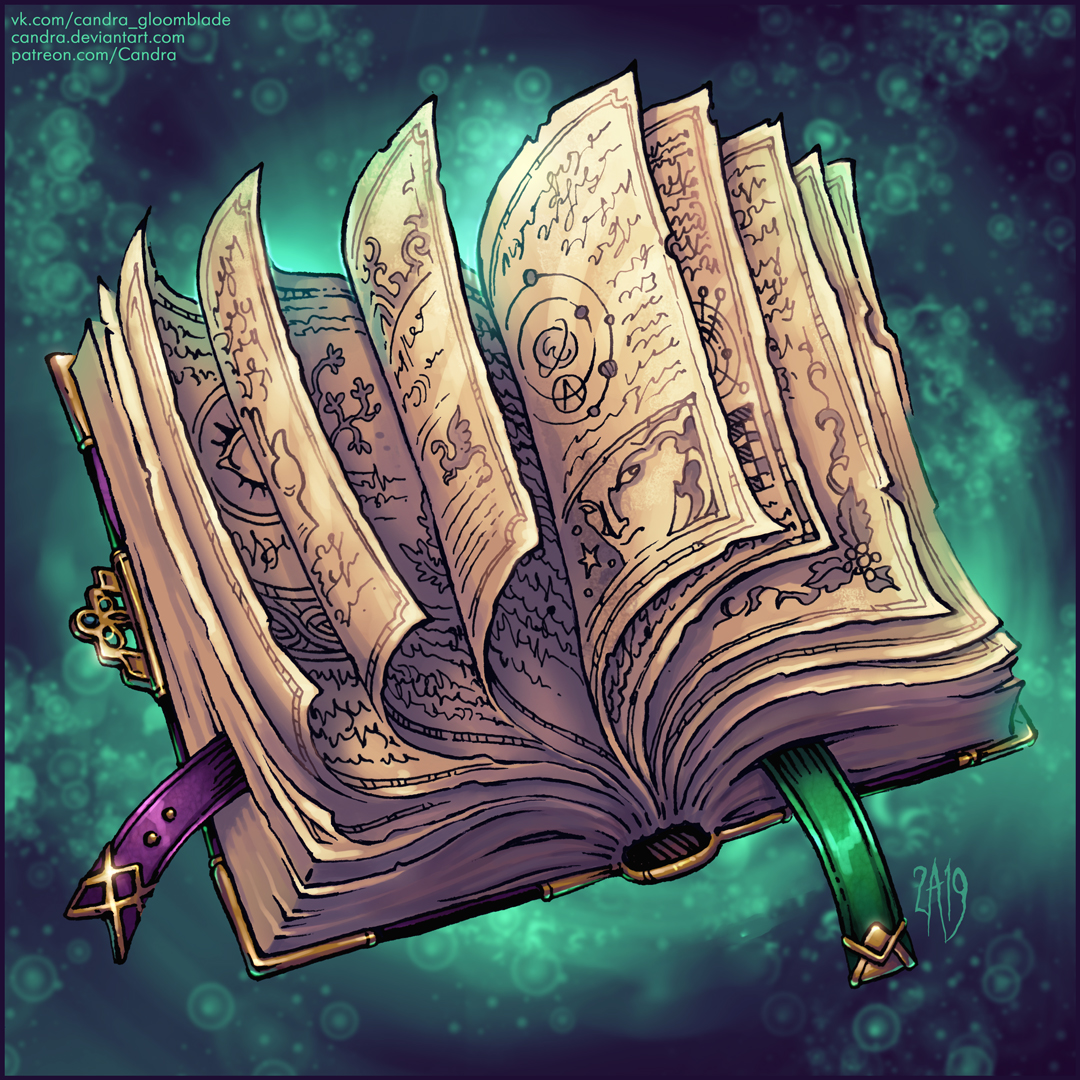

Aym, Queen Avarice
Dwarven legends depict Aym as the greediest dwarf queen who ever lived. Aym arose as a great leader among them. Greed brought her to power, and greed consumed her while she ruled. Dwarves mined furiously in response to Aym's constant demand for more gems and precious metals, and her people became virtual slaves to their work. As onerous as Aym's rule was, however, all this mining greatly expanded the dwarves' territory, and many dwarven clans grew quite wealthy.
Jealous of the dwarves' wealth and smarting from their conquests, a great horde of orcs, giants, and goblinoids banded into an army to assault Aym's kingdom. Legend has it that when the fires of the burning city reached her, Aym stood among a hundred wagons laden with gold that her servants had loaded in preparation for her flight. But so engrossed was she in counting the coins to make certain she didn't lose a copper that she didn't notice the danger until the fires began to melt the coins in her grasp. Rather than repenting her greed at the point of her death, Aym cursed Moradin for not protecting her, and in return, Moradin cursed her.
- Sign. You bear a starshaped brand on the palm of your left hand or on your forehead.
- Minor Arcana: Sundering Strikes. You deal double damage to objects and structures.
- Minor Arcana: Gold Sickness. You are proficient in jeweler's tools, and your proficiency bonus is doubled for any ability check you make that uses them.
- Major Arcana: Halo of Fire. Once per turn as an action or attack, you may expend one aetherflow die to wreathe yourself in flames for up to 1 minute, or until your concentration ends (as if concentrating on a spell). A creature that touches you or hits you with a melee attack while within 5 feet of you takes fire damage equal to one roll of your aetherflow die.
Balam, the Bitter Angel
Binder scholars claim that Balam is all that remains of the soul of a powerful solar that now drifts along the Weave. Exactly how she came to exist in her current state remains a mystery, but sources of planar lore state that several good gods tasked her with eliminating the practice of sacrificing sentient beings in the worship of deities. Since such sacrifices are part and parcel of evil rituals, the task amounted to wiping out the worship of evil gods altogether—a task well beyond what even the good deities could manage. Needless to say, Balam failed in her assignment, and some believe that her foes actually sacrificed her in praise of a dark god.
- Sign. Your voice gains a peculiar quality, becoming both hollow and guttural.
- Minor Arcana: Prescience. Once per short or long rest, you get a glimpse of the future, allowing you to re-roll a failed dexterity saving throw.
- Minor Arcana: Solar's Defense. You are resistant to radiant damage.
- Major Arcana: Icy Glare. Once per turn as an action or attack, you may expend one aetherflow die to optically assault a target within 30 feet. If you do, the target must make a Wisdom saving throw. On a failure, they take X cold damage, and their movement is halved until the end of their next turn. On a success, they take half as much damage and are not slowed.
Chupoclops, Harbinger of Forever
Chupoclops was a titanic spiderlike creature who stalked the Ethereal Plane, devouring ghosts and giving birth to mortals' nightmares. Legend has it that the gods trapped the monstrous Chupoclops in the realm of ghosts to prevent it from devouring hope, but it was destined to escape and sate its hunger during the end times.
Because Chupoclops was a terror to both the living and the undead, several powerful individuals eventually joined forces to fight it. Three were great heroes, and four were powerful villains. Four of these seven—one of the heroes and three of the villains—were ghosts; the rest were living. This group set out to murder Chupoclops and thus accomplish what deities could not. The furious battle lasted for seven days, and each day ended with the death of one member of the group that had come to kill the great monster. On the last day, the last hero struck down Chupoclops with her dying blow.
- Sign. Your lower jaw increases in size, and two long, sharply pointed tusks grow upward from it.
- Minor Arcana: Soulsense. You notice and locate living creatures within 15 feet as if you possessed the blindsense ability. This feature does not work on undead, constructs, elementals, or oozes.
- Minor Arcana: Ethereal Watcher. As a bonus action, you can magically turn invisible until the start of your next turn or until you attack, make a damage roll, or force someone to make a saving throw. Once you use this trait, you can’t use it again until you finish a short or long rest.
- Major Arcana: Venemous Bite. Once per turn as an action or attack, you may expend one aetherflow die to use your enlarged jaw to bite a creature. If you do, make a melee spell attack against one creature within 5 feet. On a hit, the creature takes X poison damage and must make a Constitution saving throw or become poisoned until the end of its next turn.

Eligor, Dragon's Slayer
Eligor was a great half-elf horeseman and dragonslayer. After Eligor's death, Tiamat sent her draconic minions against the followers of both the human and the elven deities, demanding that they release his soul to her. Despite Eligor's services, the deities gave up his soul to stave off the dragon attacks against their living followers.
Only one deity argued against this injustice, the details of whom differs with the teller. Whoever it was, this god set off alone to face Tiamat and wrest Eligor's soul from her grasp. Upon arrival, however, the deity found Eligor in the service of Tiamat rather than in bondage. Unbeknownst to the other gods, Tiamat had raised him from death to be her champion and enforcer, using his abandonment by the other gods to win his loyalty. Eligor and the nameless deity fought, and Eligor lost his life yet again. This time, no deity laid claim to his soul.
- Sign. One of your hands becomes thickly scaled.
- Minor Arcana: Eligor's Resilience. Once per short or long rest, you may cast Absorb Elements without expending a spell slot. The level of this spell is equal to your proficiency bonus.
- Minor Arcana: Eligor's Skill in the Saddle. When you or your controlled mount use an action to Dash, you can use a bonus action to make one melee weapon attack or to shove a creature.
- Major Arcana: Chromatic Strike. Once per turn as an action or attack, you may expend one aetherflow die to strike with power of Tiamat. If you do, make a melee spell attack against one creature within 5 feet. On a hit, the creature takes X damage of your choice of acid, cold, electricity, or fire.
Eurynome, Mother of the Material
Before recorded time, the gods and titans battled on the Outer Planes. Tired of the struggle, the titan Eurynome fled to the roiling chaos that made up the Material Plane. She divided the world into sky and sea, and she danced alone upon the waves. Incensed by her impertinence in meddling with a world as yet unformed, the gods struck Eurynome down. Angered by her abandonment of their fight, her fellow titans refused to come to her aid. Eurynome's body became the first island, her blood became the first river, and her soul became a vestige.
- Sign. Your skin becomes clammy, and you leave moist prints on any object your body touches, even if clothing blocks direct contact.
- Minor Arcana: Water Dancing. You can move on liquid as if it were firm ground.
- Minor Arcana: Fish Friend. Through sounds and gestures, you can communicate simple ideas with aquatic beasts.
- Major Arcana: Sea Conjuring. Once per short or long rest, you may expend one aetherflow die to cast Summon Beast without expending a spell slot and without material components. You summon a water beast, and the duration is reduced to 1 minute. The level of this spell is equal to your proficiency bonus.
Gaia, Soul of the Land
Gaia was both the nature goddess of a lost continent and the body of that land itself. She was the patron of all creatures and the defender of sacred life. When the land was injured, she too was hurt, her life-essence pumping in time with the earth. When Tkhaluuljin, a mammoth alien squidlike entity, attacked the land, Gaia fought, hoping to sacrifice her essence to protect the lives of her beloved residents. Her attempts were a failure and Tkhaluuljin swallowed her along with all life that lived on her surface.
Even in the gargantuan stomach of the alien squid, Gaia continued to fight for her people, raking Tkhaluuljin with sharp branches and rocks and inciting her surviving followers to use their magic against the entity. Gaia and those that lived upon her could not save themselves, but they did destroy their captor. After a long drawn-out fight, Tkhaluuljin was so injured that it could no longer control its flight. It plummeted into the ocean, killing itself, Gaia, and her charges in the process.
- Sign. The hair on your face, head, and body takes on a greenish hue, as do the eyes and skin.
- Minor Arcana: Earth's Voice. You can understand, but not speak, all spoken languages.
- Minor Arcana: Earthsense. You gain tremorsense out to 15 feet.
- Major Arcana: Planetary Healing. Once per short or long rest as an action, you may expend an aetherflow die to start a regeneration effect on your body for 1 minute or until you lose concentration (as if concentrating on a spell). When you use this ability and at the start of each of your turns, you regain hit points equal to one roll of your aetherflow die.
Karsus, Hubris in the Blood
Karsus was a potent mortal spellcaster who attempted to steal the powers of a deity that had jurisdiction over magic. He succeeded, but realized too late that his mortal frame and soul could not contain the power. He died, and his soul remained tied to the Material Plane for ages, never becoming a petitioner. Some claim that part of it somehow still lingers there. With no planar home and no deity who would claim him, Karsus became a vestige.
- Sign. You bleed more than normal from wounds. Even a small scratch releases a sanguine flood. This effect does not deal extra damage.
- Minor Arcana: Karsus's Senses. You can cast Detect Magic once per short or long rest without expending a spell slot.
- Minor Arcana: Karsus's Will. You may attune to items that require attunement by a Wizard.
- Major Arcana: Karsus's Touch. Once per turn as an action or attack, you may expend one aetherflow die to strike with spell-breaking magic. If you do, make a melee spell attack against one creature within 5 feet. On a hit, the creature takes X force damage, and you select up to one spell effect on the target. Make a spellcasting ability check. The DC equals 10 + the spell's level. On a successful check, the spell ends.

Marchosias, King of Killers
In life, Marchosias was a human who brought death to others. His favorite targets were other assassins and murderers, but this choice of foes had nothing to do with morals. Despicably evil, Marchosias was obsessed with improving his skill as a killer, and ending the lives of other professional slayers seemed the best challenge.
When Marchosias met his death, his soul traveled to the Nine Hells. The devils gleefully accepted his powerful spirit, but others took note of his arrival and were not pleased. The spirits of hundreds of thugs, slaughterers, executioners, and assassins banded together and rebelled against their devilish captors—intending not to escape or take control, but to attack Marchosias. Although the devils were loath to allow such lawlessness, they let the souls of the damned fight it out, thinking to step in and punish all the spirits when the battle was over. Marchosias fought well, but he could not prevail against so many foes at once, and he fell under the onslaught. When the devils pulled back the attackers, nothing was left—Marchosias's soul had been torn to pieces.
- Sign. The pupils of your eyes glow with a red-orange light.
- Minor Arcana: Death Attack. Once per short or long rest, when you reduce an enemy creature to 0 hit points, you can restore 1 aetherflow die.
- Minor Arcana: Silent and Sure. You are proficient in the Stealth skill.
- Major Arcana: Smoke Attack. Once per turn as an action or attack, you may expend one aetherflow die to assume the form of a smoke cloud. You can immediately move up to 15 feet in any direction, and your movement doesn't provoke opportunity attacks. You then reassume your original form and can make a melee spell attack with advantage against one creature within 5 feet. On a hit, the creature takes X force damage.
Orthos, Sovereign of the Howling Dark
Orthos might well be the original vestige. Pact magic texts always mention this entity, and persistent explorers can find its seal represented in art or architecture on most planes, as well as in the ruins of many ancient civilizations. Binder scholars have a thousand theories about Orthos's origins, but none is more than mere supposition. All agree that Orthos is inestimably old, and it has long since shed whatever form and persona it might once have had, becoming an alien and distant being. In deference to its great age and the hallmark of its appearance, binder scholars have dubbed Orthos the Sovereign of the Howling Dark.
- Sign. You always seem to be buffeted by a breeze that no one else can feel, even when you're indoors. The eerie wind makes no noise, but it tousles your hair and belongings, frequently changing direction.
- Minor Arcana: Displacement. Once per short or long rest, you may cast Blur without expending a spell slot.
- Minor Arcana: Whispering Wind. You can cast the Message cantrip at will.
- Major Arcana: Whirlwind Breath. Once per turn as an action or attack, you may expend one aetherflow die to exhale a forceful gale. Each creature in a 15 cone originating from you must make a Dexterity saving throw. On a failure, a creature takes X bludgeoning damage and is knocked prone. On a success, they take half as much damage and are not knocked prone.
Savnok, the Instigator
Savnok served Hextor and Heironeous before the two half-brothers came to blows. The gods were charged with guarding their mother's arms and armor while she met with her lovers. Both Hextor and Heironeous were awed and tempted by their mother's implements of war, but neither son dared disobey his mother.
Savnok convinced Hextor and Heironeous into letting him guard their mother's armory for them. But once his gaze fell on the goddess's armor, Savnok could not resist donning it. Just touching the metal made him drunk with power. After putting it on, he knew he could never take it off, so he fled the godly realms with the divine armor. Shocked at his betrayal and horrified by their own failure to perform their duties, Hextor and Heironeous appeared before Savnok and ordered him to relinquish their mother's armor. Their former servant responded by attacking, and although he could not harm them, neither could they harm him.
Heironeous flew into the sky and tore thunderbolts from the clouds to hurl at Savnok, but Hextor, realizing that they needed deific weapons to defeat the armor, fled back to his mother's armory. There, he found a mighty bow. Hextor barely had the strength to draw his mother's bow, but draw it he did. With each arrow he fired, a dozen missiles streaked down to strike Savnok. Though the arrows had little power behind them, they did pierce the armor, and Savnok slowly bled to death from dozens of small wounds.
- Sign. A piece of an arrow appears under your skin somewhere on your body. It looks as though your skin has healed over a broken-off arrow that had previously wounded you.
- Minor Arcana: Deific Armor. While you are wearing light or medium armor, bludgeoning and slashing damage that you take is reduced by 3.
- Minor Arcana: Call Armor. You can don and doff armor as an action.
- Major Arcana: Pincushion. If an ally within 30 feet that you can see would be damaged by a ranged weapon attack, you may use your reaction and expend an aetherflow die to redirect that missile to you instead. If you do, the attack automatically hits you, and you may reduce the damage dealt by the attack by one roll of your aetherflow die plus your proficiency bonus.
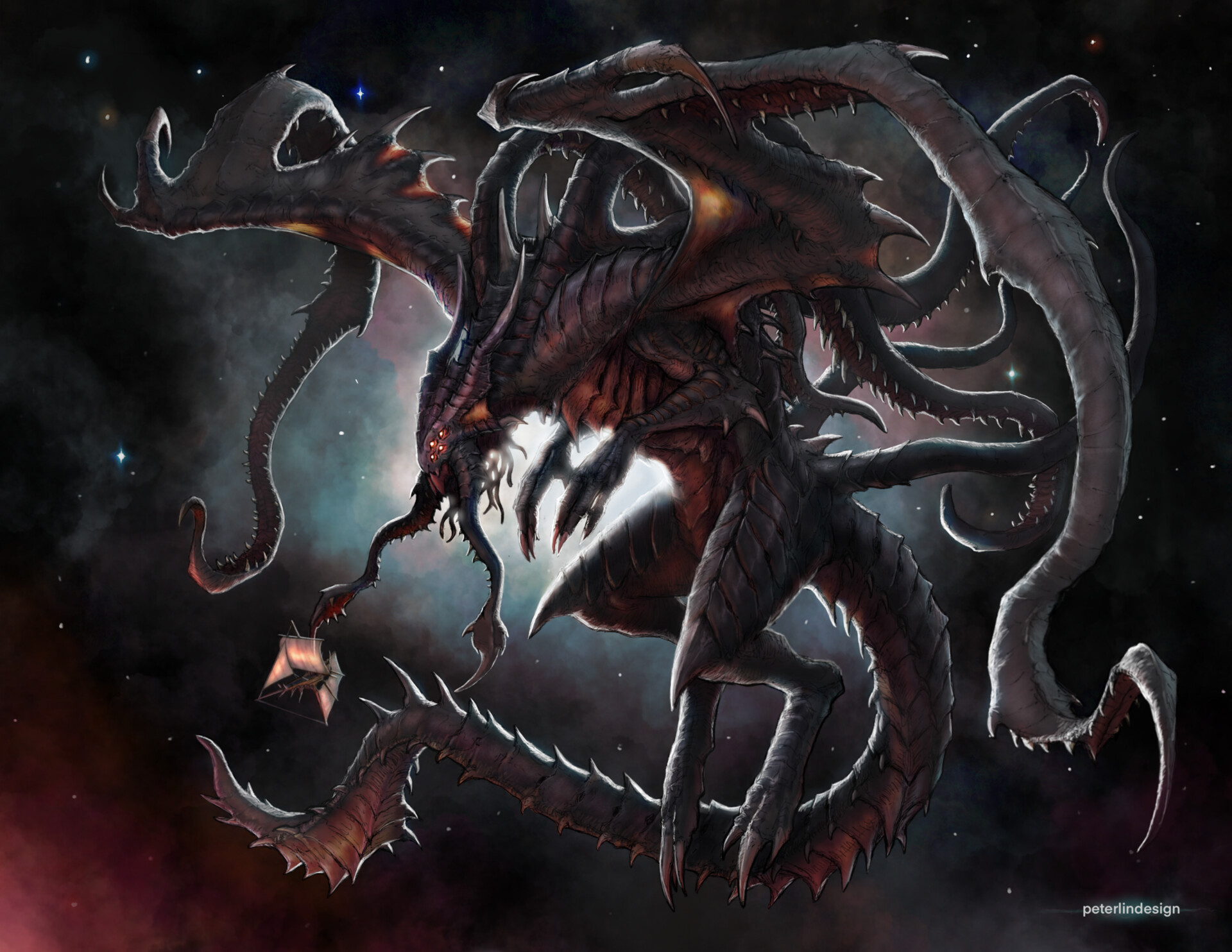

Tkhaluuljin, The Cephalopocalypse
No one knows where Tkhaluuljin came from. In the language of the gith, its name roughly translates as "living armageddon." Scholars of planar lore believe that it may have emerged from some sort of rift or black hole and that it is a being of pure nihilism that serves no purpose beyond indiscriminate destruction.
When Tkhaluuljin attempted to devour the land known as Gaia, it had no expectation that this land would be any different than the others. It never really thought about what it was eating. Then, as it devoured that land, it could no longer control its flight, so it plummeted into the ocean where it was torn apart from within. When it finally exploded in a supernova, it destroyed everything within hundreds of miles.
- Sign. Your veins appear spidery and more pronounced, emitting a pulsing magenta light.
- Minor Arcana: Flight of the Alien. When you take the Dash action, you can fly with the extra movement you gain.
- Minor Arcana: Feast on Gaia. Once per short or long rest, you can eat a mouthful of dirt as a bonus action to restore 1 aetherflow die.
- Major Arcana: Touch of Madness. Once per turn as an action or attack, you may expend an aetherflow die to lash at a creature's psyche. If you do, make a melee spell attack against one creature within 5 feet. On a hit, the creature takes X psychic damage and must make an Intelligence saving throw. On a failure, the creature rolls on the Behavior table under the Confusion spell at the start of its next turn.
Zceryll, the Star Spawn
Thousands of years ago, an alienist sorceress known as Zceryll learned bizarre powers in a fight to defend herself against oppression. She was promised untold power by strange, alien beings known as starspawn from beyond the world. All she had to do was to create portals to summon them.
Zceryll created the portals and summoned the star spawn to her aid. She fought back against her oppressors, finding a newfound purpose in her life. She traveled the world, creating many portals for her masters and items of her own devising.
Zceryll was unaware of the slow corruptive effect the star spawn had on her. By the time she realized something was wrong, it was too late to change. Eventually, her body became so suffused with alien power that she became one of them. When her life came to an end, she was a twisted and bitter old hag. She felt she had accomplished nothing and became obsessed with youth. When her time was up, her soul vanished into the far realms, and she became a vestige.
- Sign. Your eyes appear as circular mirrors. In your peripheral vision, all other living creatures appear twisted, covered in tentacles, extra eyes, and vestigial organs.
- Minor Arcana: Telepathy. You can telepathically speak to any creature you can see within 30 feet of you. You don’t need to share a language with the creature for it to understand your telepathic utterances, but the creature must be able to understand at least one language.
- Minor Arcana: Alien Mind. You have advantage on Intelligence and Charisma saving throws.
- Major Arcana: Reaping Arms. Once per turn as an action or attack, you can lash at all nearby enemies with tentacles that spawn from your body and then immediately disappear. Each creature of your choice within 10 feet of your must make a Dexterity saving throw. A creature takes X bludgeoning damage on a failure, or half as much on a success.
Sources

- Arithmetician, Convoker, and Theurgist are inspired by the arithmetician, Summoner, and Scholar from Final Fantasy XIV.
- Binder is my interpretation of the Binder class from DnD 3.5.
- Vestige lore and information are taken from the following website: Link
- Waterstains are supplied by Jared Ondricek (/u/flamableconcrete): Link
- Vitruvian Aeon by Andromatonrecursion
- Unbound by Todd Lockwood
- Teferi's Tutelage by Ilse Gort
- FFXIV Summoner Alphinaud Leveilleur & Bahamut Fanart by Bom Yeon
- FFXIV Summoner by Akihiko Yoshida; Square Enix
- しょうりょう の 魔法師 by pingffy*
- Airy by Akihiko Yoshisa; Square Enix
- Fairy ring by LiigaKlavina
- Binder; Wizard of the Coast
- Emergent by Chaos Fissure
- Spellbook by Candra
- Void Dragon by Peter Lin